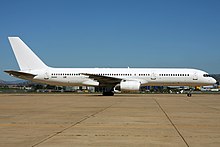Foreign Emergency Support Team
 | |
| Agency overview | |
|---|---|
| Formed | 1986 |
| Type | Interagency Task Force |
| Headquarters | Harry S. Truman Building, Washington, D.C. |
| Parent department | U.S. Department of State |
| Parent agency | Bureau of Diplomatic Security |
| Website | https://www.state.gov/foreign-emergency-support-team/ |
The Foreign Emergency Support Team (FEST) is an interagency task force of the United States government, tasked with on-call short-notice responses to terrorist incidents across the world. It consists of personnel from military, intelligence, and diplomatic agencies, as well as other departments when required.
History
[edit]The FEST was created in 1986, and has long since largely remained shrouded in mystery. Since then it has deployed over thirty times to critical situations around the world. The team maintains the capability to deploy within hours to advise and assist the U.S. Chief of Mission coordinating U.S. government crisis response activities and to augment embassy operations.[1]
The Diplomatic Security Service leads the FEST, and it includes representatives from the U.S. Department of State, Department of Defense, the Intelligence Community, and the Federal Bureau of Investigation, and other appropriate agencies, such as the Department of Energy, as circumstances warrant. FEST composition is flexible and tailored to the specific incident and U.S. embassy needs. The FEST provides specialized crisis response expertise to augment existing U.S. Mission and host government capabilities.[2][3][4] In addition to terrorism, the unit specializes in responding to Weapons of Mass Destruction and CBRNE events.[5]
FEST is the counterpart of the Domestic Emergency Support Team (DEST) which serves a similar role for crises within the United States.
Activity
[edit]U.S. Embassy Bombings
[edit]The FEST was particularly active when operatives of Osama bin Laden's al-Qaeda network bombed U.S. embassies in Kenya and Tanzania.
USS Cole bombing
A FEST was deployed to Aden, Yemen following a terrorist attack against the USS Cole, which killed 17 American sailors in October 2000. The FEST advised the US ambassador and helped her direct America's response to the attack. The team relied heavily on FEST's secure mobile communications capability, since the Port of Aden is more than 200 miles from the American Embassy in Sanaa.
Beirut Port Explosion
[edit]
On August 7, 2020, the FEST deployed from Andrews Air Force Base to Beirut, Lebanon, to lend support to the U.S. Embassy in Beirut as part of the U.S. government’s response following what was later discovered to be an ammonium nitrate fire which caused one of the largest artificial non-nuclear explosions in human history in the city's port.[6] The blast on August 4 had ripped through the port of Beirut, causing extensive injuries and damage throughout the surrounding area. Shortly after the blast, the U.S. Embassy in Beirut requested support from the DSS-led FEST to help coordinate interagency support for emergency response, restoration of essential services, and public health and safety protection.[7]
Training
[edit]
Invincible Sentry 21
[edit]In March 2021, members of the FEST participated in a five-day military crisis response exercise between Qatari and U.S. military forces in Doha, Qatar. Exercise Invincible Sentry 2021 (IS 21) is an annual U.S. Central Command training event, hosted this year by the government of Qatar. IS 21 included close coordination and training with the Qatar’s Ministry of Defense, the U.S. Embassy Doha, and other U.S. government entities.[7]
Contingency teams
[edit]"Contingency" FESTs were deployed to ensure safety at the Olympic Games in Athens, Greece (Summer 2004) and Turin, Italy (Winter 2006), and in Lagos, Nigeria during a hostage-taking crisis.
Smaller deployments
[edit]The team has been spotted flying into Iraq,[8] throughout central Europe, and several times in Amman, Jordan.[9] Team constituent agencies organize a FEST to conduct training with partner nations often.[1]
Smaller, "tailored" FESTs have responded to abductions of Americans in Ecuador and the Philippines.
Composition
[edit]Organizations and units which commonly comprise the FEST:
- Department of State
- Department of Defense[10]
- Army Reserve Counter Terrorism Unit
- Other military units as appropriate
- Federal Bureau of Investigation[10]
- Department of Health and Human Services[10]
- Department of Energy[10]
- United States Agency for International Development[10]
- Bureau of Humanitarian Affairs[10]
- U.S. Intelligence Community[10]
- Other federal agencies as appropriate[10]
Equipment
[edit]
Boeing C-32B
[edit]- The FEST is a primary user of the specialized Boeing C-32B transport aircraft, shared with the CIA, and operated by the New Jersey Air National Guard's 150th Special Operations Squadron and Air Force Special Operations Command's 486th Flight Test Squadron.
See also
[edit]References
[edit]- ^ a b "Programs and Initiatives". 2009-2017.state.gov. Retrieved 2020-10-25.
- ^ "Programs and Initiatives". www.state.gov.
- ^ "Foreign Emergency Support Team (FEST)". US Department of State. Retrieved on May 8, 2013
- ^ State Department OIG (May 2020). "State Department Office of Inspector General Inspection of the Bureau of Counterterrorism" (PDF). U.S. Department of State.
- ^ "Tactical Programs, PHE". www.phe.gov. March 17, 2017. Retrieved 2020-10-26.
- ^ "00-9001 | Boeing C-32B | United States - US Air Force (USAF) | Simon Reichert". JetPhotos. Retrieved 2020-10-26.
- ^ a b "Foreign Emergency Support Team (FEST)". United States Department of State. Retrieved 2021-06-05.
- ^ Gomez, Manu. "FEST C32B Flight Radar". Twitter. Retrieved 2020-10-26.
- ^ Pio, Jordan (October 8, 2020). "C32B in Jordan". Twitter. Retrieved 2020-10-26.
- ^ a b c d e f g h i j k l m n "Foreign Emergency Support Team (FEST)". United States Department of State. April 26, 2021. Retrieved 2021-06-05.


 French
French Deutsch
Deutsch